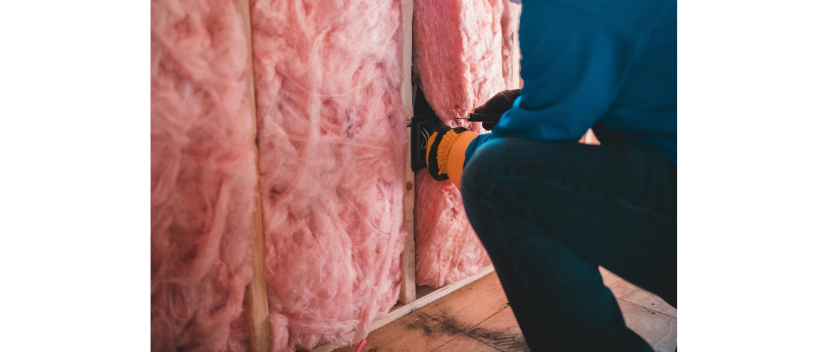How to Soundproof an Apartment: A Musician’s Guide

Are you a musician looking for ways to practice, play, and record music without disturbing your neighbors? Do you frequently ask yourself, “how can I soundproof my apartment?”
Well, you’re in luck. This post will guide you through the process of reducing noise pollution and making your apartment a haven for your musical pursuits.
Sound Transmission
Let’s start with understanding sound waves. You see, sound travels in waves, and when these waves hit hard surfaces, they bounce back, creating a cacophony of noise.
This is why apartments with hard flooring and clear glass windows often have higher noise levels. But don’t worry, there are numerous ways to absorb these pesky sound waves.
Acoustic Treatment and Sound Proofing
Acoustic panels are a great place to start. These panels work by absorbing sound waves, thereby reducing noise transfer in your immediate environment. They come in various sizes and can be placed on walls and doors to muffle sounds.
Acoustic foam panels are another option. Similar to acoustic panels, they absorb sound but are made from a light, airy material, making them easier to install.
Soundproof curtains are also great for reducing noise levels. They are thick and made from sound-absorbing materials such as wool or cotton. These curtains can be hung over windows or room dividers to block out external noises.
Seal the Gaps
Small gaps and cracks around doors, windows, and outlets are major culprits when it comes to sound transmission. Inspect your apartment for these gaps and seal them with soundproofing materials like caulk or weatherstripping.
Rugs and Carpets
As mentioned earlier, hard flooring can contribute to noise pollution. To reduce this, consider adding carpets and rugs to your apartment. These soft surfaces will absorb some of the sound waves, making your apartment quieter.
Furniture Placement
Believe it or not, the way you arrange your furniture can also impact sound levels in your apartment. Placing tall and bulky furniture against walls can help absorb some of the noise bounce.
Additionally, bookshelves filled with books and other items act as natural sound absorbers.
Sound Isolation
If you live in an apartment building with shared walls, you may want to consider sound isolation techniques. These include adding mass-loaded vinyl or sound barrier materials to the apartment walls to prevent the transfer of noise.
Outside Noise Reduction
But what if the noise is coming from outside your apartment? Street noise, neighbors noise, or even disruptive noise sources like traffic or construction can all seep into your apartment. This is where sound insulation comes in.
- By adding insulation to your existing windows and doors, you can significantly reduce the amount of external noise entering your home.
- Consider replacing your single pane windows with double-glazed ones or using window inserts. These not only seal gaps in your existing window but also create a sound barrier that significantly reduces outside noise.
- If replacing windows isn’t possible or is outside your budget, don’t fret.
- Heavy curtains can also serve as an effective, and cheaper, sound barrier.
Inside Noise Reduction
What about sounds coming from within your apartment? The cheapest way to reduce inside noise is by using soft furnishings.
- Upholstered furniture, wall hangings, and even bookshelves filled with books can absorb sound waves and reduce noise levels significantly.
- Rugs and carpets on a hard floor also help in sound absorption.
- Door sweeps are another nifty tool to stop noise from seeping through your apartment doors. A door sweep is easy to install at the door’s edge and can effectively seal gaps, reducing noise transfer.
- If you have a hollow door, consider replacing it with a heavy set door. This simple change can provide a significant reduction in noise transmission.
- If you’re dealing with pipe noises, pipe insulation foam can be your best bet. It’s an easy and affordable solution that can drastically reduce the sounds of running water and heating systems.
- White noise machines can also be a game-changer. A white noise machine emits broad band noise signals, commonly known as white noise, which can mask other disruptive sounds. Additionally, if you live in a particularly noisy area, a white noise machine can help you get a good night’s sleep at the same time!
- For those who prefer a DIY approach, why not try soundproofing blankets? These heavy-duty blankets can be draped over doors, windows, or walls to create a makeshift sound barrier.
- Similarly, adding a draft stopper to your front door or bedroom window can prevent cold air and noise from entering your home.
- Lastly, remember that every bit counts when it comes to soundproofing an apartment. Small changes like adding wall art, sealing doors with weatherstripping, or even replacing your current door’s core can make a noticeable difference.
Just keep in mind, before making any major changes, it’s important to get your landlord’s permission. After all, we want to keep the peace, both acoustically and with our neighbors!

FAQs About How to Soundproof an Apartment
What is soundproofing?
Soundproofing refers to the process of reducing or eliminating the amount of sound that enters or exits a room or apartment. It involves using materials and techniques that absorb, block or reduce the strength of sound waves.
Why would I need to soundproof my apartment?
You may want to soundproof your apartment if you live in a noisy area, have neighbors who are loud, or need to reduce noise from within your home, such as the sounds of a home theater system or musical instruments.
What are some materials I can use to soundproof my apartment?
Some materials you can use include sound-absorbing acoustic panels, acoustic foam, soundproof curtains, window inserts, and upholstered furniture.
How do acoustic panels work?
Acoustic panels are designed to absorb sound waves. They are constructed with materials that have a high sound absorption coefficient, such as rock wool, fiberglass, or foam.
When sound waves hit the panels, they are absorbed and do not bounce back, effectively reducing the overall level of sound in a room.
Can I use drapes or wall hangings to soundproof my apartment?
Drapes and wall hangings can help absorb sound, but they are not as effective as acoustic panels or foam. If you plan to use curtains, choose heavy, thick drape fabric and hang it from floor to ceiling to maximize the sound absorption.
How can I reduce noise coming from outside of my apartment?
To reduce noise from outside, you can seal doors and windows using weather-stripping or draft stoppers. You can also add bookshelves along walls to absorb sound, and use white noise machines or fans to mask the sound of other noises.
How can I soundproof my front door?
If your current door is hollow or lets in a lot of noise, consider adding a seal or installing a soundproofing door kit. These kits usually come with foam inserts and weather-stripping to help reduce noise.
Can I soundproof my floor?
Yes, you can soundproof your floor using materials such as acoustic underlayment or mass-loaded vinyl. These materials can be placed between your current flooring and subfloor to absorb sound and reduce noise.
What are some tips for soundproofing my apartment on a budget?
If you’re on a budget, consider using thick curtains, rugs, or upholstered furniture to absorb sound. You can also make your own acoustic panels using sound-absorbing materials like rock wool or fiberglass.
How effective is soundproofing in reducing noise?
The effectiveness of soundproofing depends on the materials used, the level of noise, and the source of the noise. While soundproofing can help reduce noise, it is not guaranteed to eliminate all sound.
However, when done properly, it can significantly reduce the amount of noise that enters or exits a room or apartment.
Sound Reduction Summary
So, there you have it. A comprehensive guide on how to soundproof an apartment. With these tips, you can transform your dwelling into a serene, noise-free sanctuary, perfect for indulging in your love for music.
So what are you waiting for? It’s time to hit those high notes without hitting a nerve with your neighbors.
